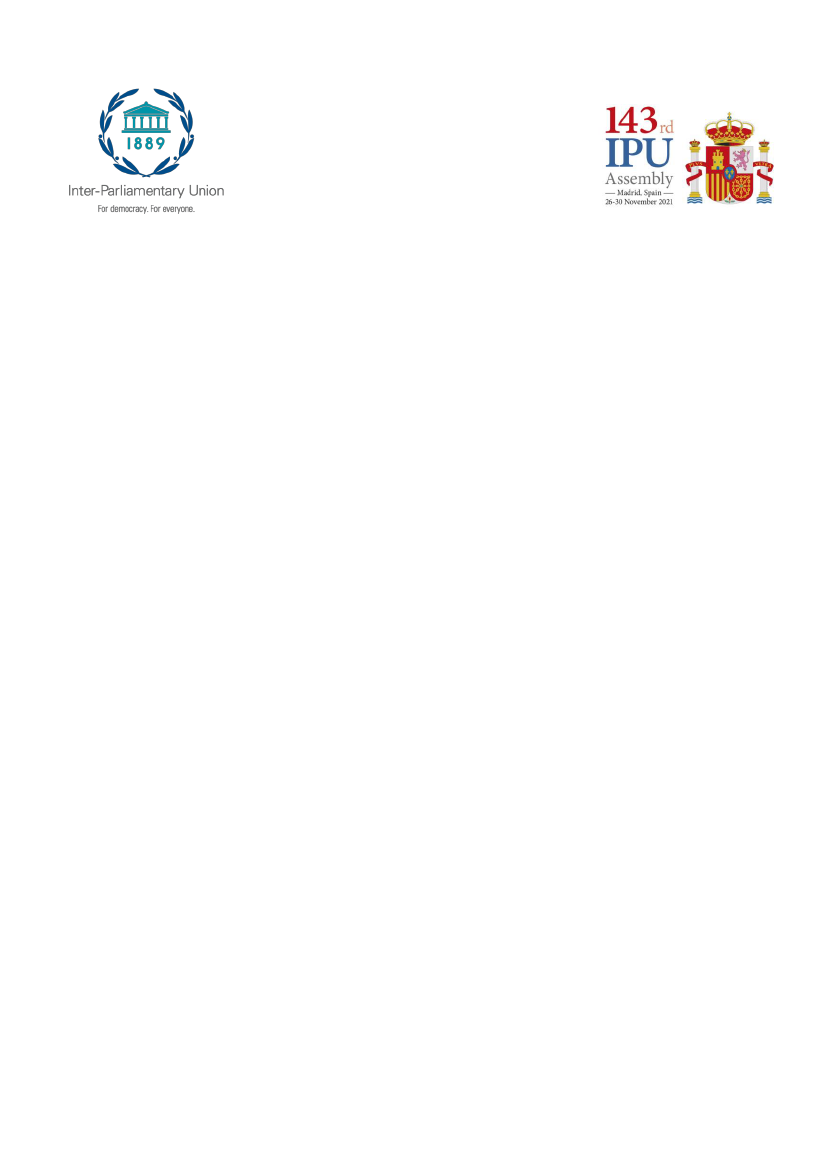
143rd IPU Assembly
Madrid, Spain
26-30 November 2021
Harnessing global parliamentary support
for vaccine equity in the fight against
the COVID-19 pandemic
Resolution adopted unanimously by the 143rd IPU Assembly
(Madrid, 29 November 2021)
The 143rd Assembly of the Inter-Parliamentary Union,
Welcoming
the UN Security Council Resolution 2565 (2021) adopted on
26 February 2021,
Recalling
that the right to the enjoyment of the highest attainable standard of
physical, mental and social health and well-being is a fundamental human right enshrined
in Article 25 of the Universal Declaration of Human Rights, the International Covenant on
Economic, Social and Cultural Rights, Sustainable Development Goal 3, the Constitution
of the World Health Organization, the majority of national constitutions and other
international treaties and agreements to which the IPU Members are signatories,
Also recalling
that this right is accorded to all human beings regardless of
race, colour, sex, language, religion, political or other opinion, national or social origin,
property, disability, birth or other status,
Cognizant
that, on 23 September 2019, world leaders endorsed a
comprehensive political declaration on health at the UN High-Level Meeting on Universal
Health Coverage under the theme
Universal Health Coverage: Moving Together to Build
a Healthier World
in which they undertook to co-operate in strengthening health systems
to ensure that they are equitable, resilient and capable of meeting everyone’s needs as
an essential priority for international development,
Mindful
that, at the 141st IPU Assembly held in Belgrade, Serbia in
October 2019, the IPU adopted a landmark resolution entitled
Achieving Universal Health
Coverage by 2030: The role of parliaments in ensuring the right to health
calling for
parliaments to take all legal and policy measures to achieve Universal Health Coverage
and address barriers to access to health for all,
Noting
that the COVID-19 pandemic has been an ongoing moment of
reckoning for health systems and health security around the world, as well as to our
commitment in both word and deed to achieving Universal Health Coverage and
addressing barriers to access to health for all in such times of crisis,
Recognizing
that vaccination is part of a comprehensive strategy to reduce
transmission and save lives and is among the most important tools in the fight against the
pandemic, and reaffirming that extensive COVID-19 immunization is a global public good,
E
#IPU143